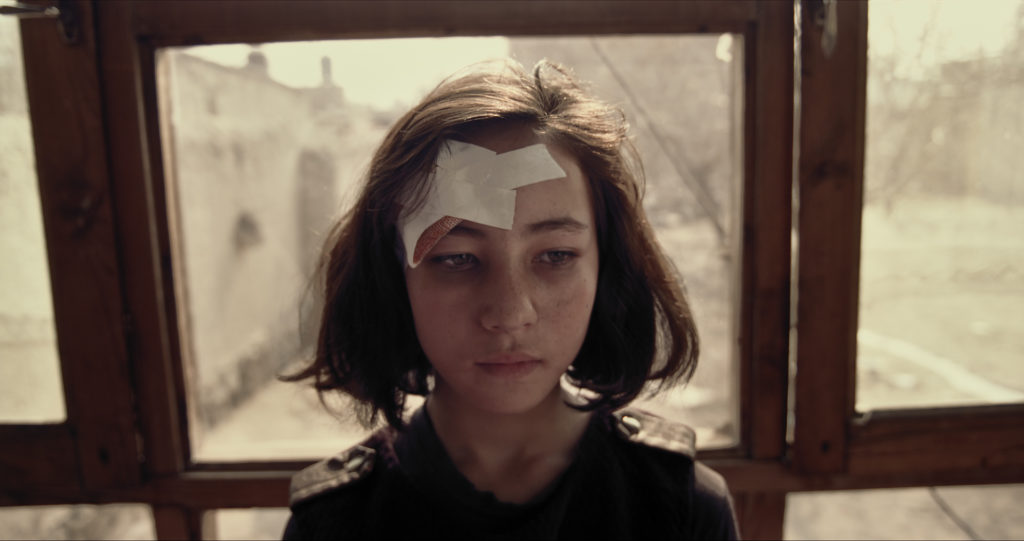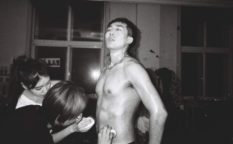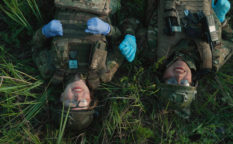Review: Roqaia (2019) by Diana Saqeb Jamal

During a suicide- bomber’s attack, Roqaia (Roqia Rasuli) has apparently saved many lives, but the heavily traumatized girl doesn’t have time to deal with her PTS. The TV team is in the village, and they want to do a coverage about what had happened. The immediate environment refuses to acknowledge Roqaia’s distress, and she is silently putting up with questions and demands. She’s been dragged around and “stylized” to become a more credible victim to the viewers. Even the bandage protecting the wound is torn off her forehead because the TV crew wants to show the wound caused by the suicide attack so that “the audience understands she’s hurt”.
The girl is hurting more innerly than physically, and the lens of Zabihullah Saifi Askari is at one moment using the shallow focus and deep space to film her face, and at the next the lens gets overexposed to cast a new light on Roqaia who doesn’t utter as much as a word during the whole film. There is a small hint she might be mute and not just silent as a consequence of her trauma, but the viewer will never be sure what the truth is.
With her inability to speak, its her father (Asadullah Rasuli) who gets his 15 minutes of fame, describing the attack as something the whole world know about except the Afghan government that pretends like it never happened. The whole shoot is disrespectful of the victim and her family, and the bossing around gets out of the hand – even Roqaia’s wound shouldn’t be washed, because she’s a victim and “not a bride.”
Roqaia by a first-time director Diana Saqeb Jamal is the film that competed in the Orizzonti Corti Competition at the Venice International Film Festival.
Country: Afghanistan
Language: Pashto
Duration: 9′
Directed by: Diana Saqeb Jamal
Produced by: Arifur Rahman & Bijon
Executive Producer: Guiya Naitana Kyriakids
Director of Photography: Zabihullah Saifi Askari
Editor: Soheil Flumme Ozlati
Composer: Tin Soheili
Sound Designer: Jacques Pedersen
Colorist: Preston Drake-Hillyard
Cast: Asadullah Rasuli, Gavhar Taj Salmanian, Qodratollah
















